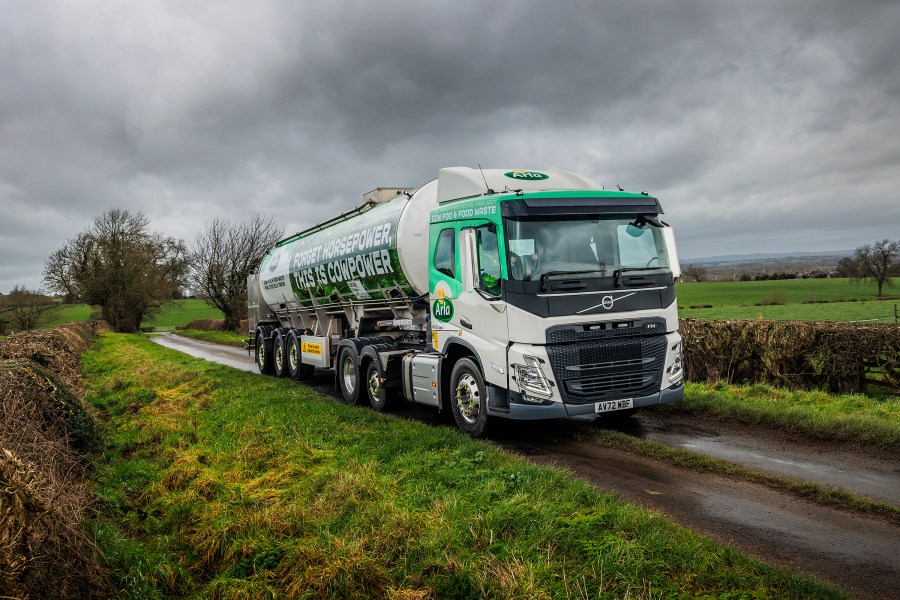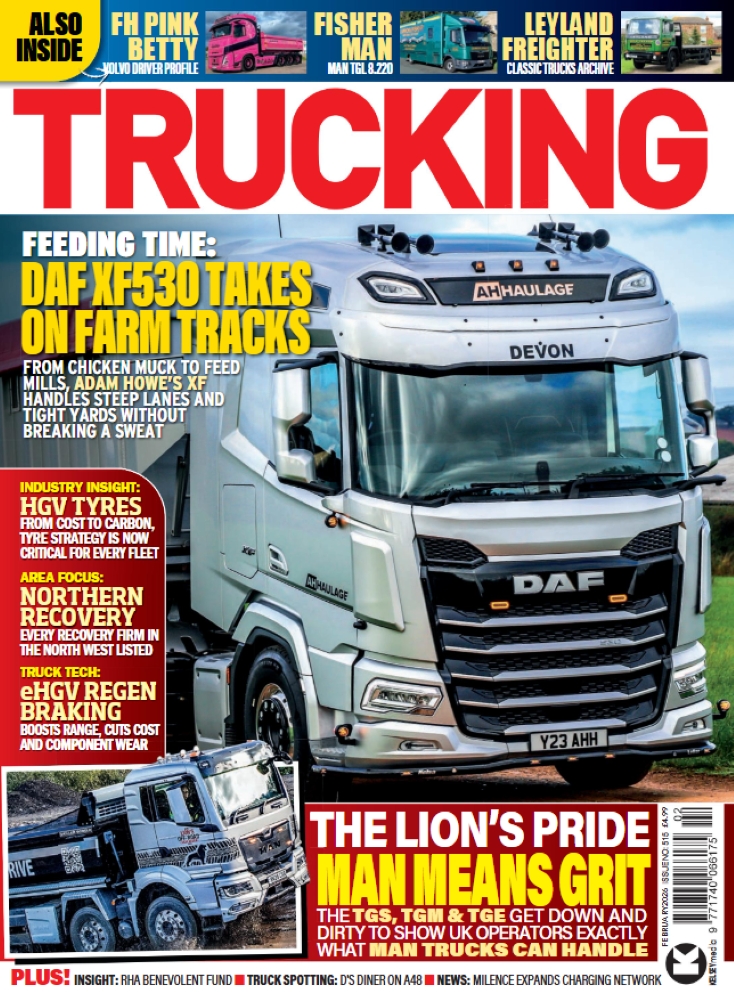As it looks to reduce carbon emissions across its fleet, Arla Foods has turned to Volvo Trucks.
Specifically, the operator has taken delivery of seven new Volvo FM LNG 6×2 tractor units.
As a result, Arla believes it will meet carbon emissions reduction targets set for 2030.
The dairy cooperative currently views bio-LNG (liquified natural gas) as the best option to improve the sustainability of its commercial vehicle fleet.
Therefore, it trialled Volvo’s gas technology and opted to go ahead with the order for seven trucks.
Supplied by Volvo Truck and Bus Centre South & East, the new FMs come equipped with sleeper cabs.
They will be used for back-to-base operations, collecting and delivering milk from Arla’s farms and depot operations.
These sites, in Leeds and Burton-On-Trent, will transport the milk to processing sites across the country.
Richard Wilson, inbound logistics director, Arla Foods, said the need to cut carbon emissions now was essential.
“We have some ambitious sustainability targets to meet in the coming years,” he explained.
“Therefore, reducing emissions from our logistics operations will be key to helping us meet these.
“We have trialled dual-fuel vehicles which proved successful, but these new units are an even bigger step up for us.”
Continuing, Wilson said Arla was “turning cow poo from our farms” and food waste into a source of renewable fuel.
“These new bio-LNG trucks will play a crucial part in our plans to hit our 2030 sustainability targets,” he said.
The main target is a 63% reduction of CO2 against Arla’s baseline from 2015 for its own fleet operations.
In other words, drastic action – possibly beyond electric and hydrogen solutions – was required.
Concluding, Wilson said: “In the medium term, we believe trucks powered by bio-LNG are the best route for us to make a significant carbon reduction.”




